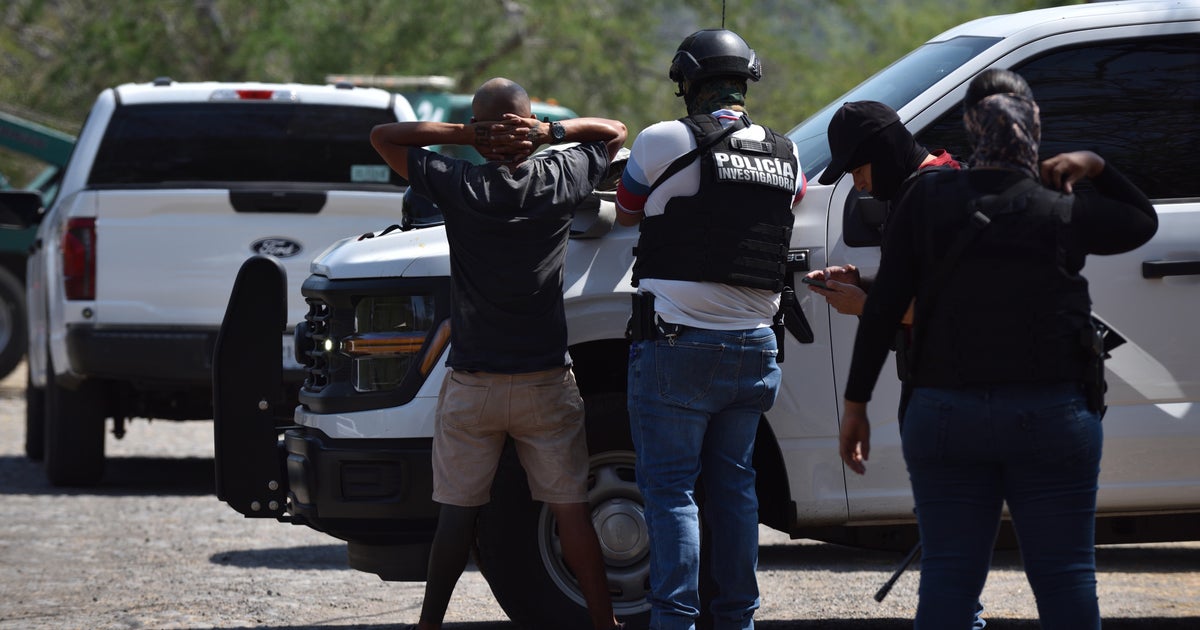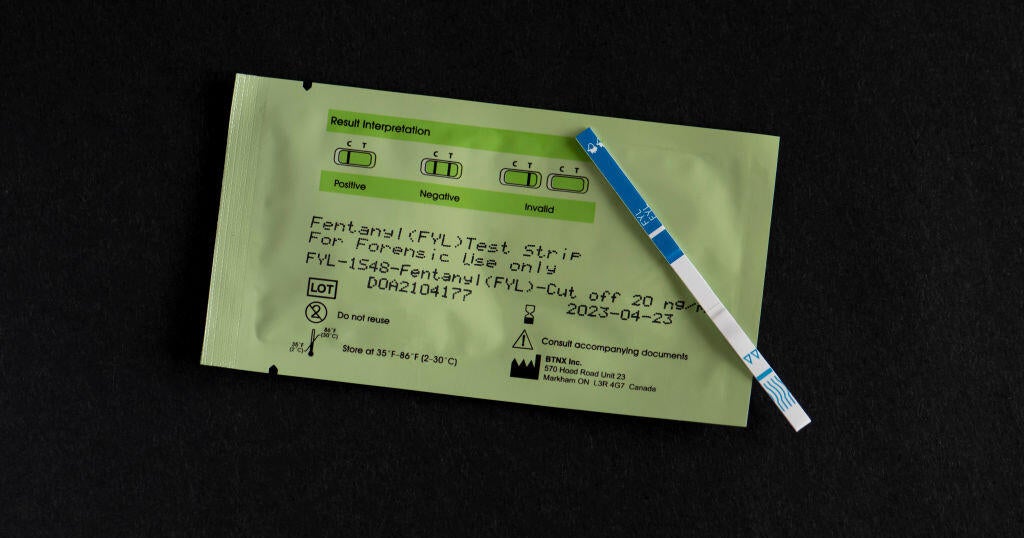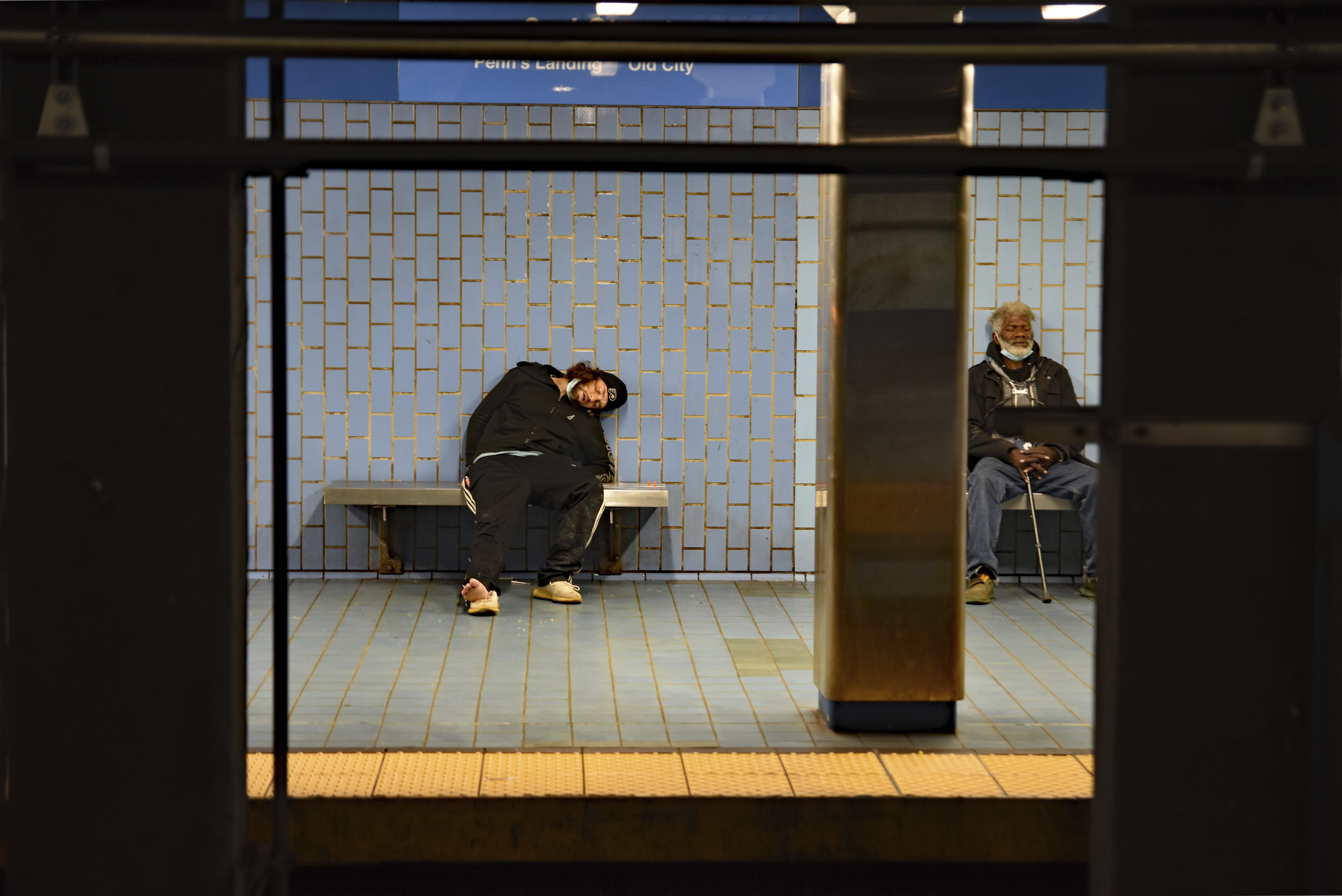Laura Berman hopes speaking about son's overdose involving drugs allegedly accessed through social media will "just save one life"
Celebrity TV therapist Laura Berman has revealed that her 16-year-old son Samuel died of a drug overdose Sunday.
In an Instagram post, Berman wrote, "My beautiful boy is gone. 16 years old. Sheltering at home. A drug dealer connected with him on Snapchat and gave him fentanyl-laced Xanax or Percocet (toxicology will tell) and he overdosed in his room."
Berman said she was hesitant to speak publicly about her son's sudden death, but she felt her son would have wanted her to.
"At first, you know, I just said no — and then as the requests kept coming to get this story out, you know, I figured Sammy must have something to do with this and if I can use what happened to him to just save one life. that helps at least if not with the grief, with the helplessness," she said.
Berman is asking social media company Snapchat to work with police on this investigation. Snapchat said it's committed to working with law enforcement in this case, and has "zero tolerance" for anyone using its platform for "Illegal purposes." They also said it's "constantly improving" technology to "detect drug-related activity so that we can intervene proactively."
Berman and her husband Samuel Chapman joined "CBS This Morning" to open up about their loss.
Read their full conversation below:
"CBS This Morning" co-host Gayle King: First Laura and Sam, I just want to say I am so sorry to hear about your son's death. I couldn't believe it when I heard the news yesterday, and I can't imagine, I really can't imagine the pain that the two of you are feeling. This is still so raw and so fresh. Now I marvel that you are sitting here with us today because many parents, myself included, would be in the fetal position; it would be hard to sit upright. How and why did you decide you want to share this story and I also think nobody knows what they will do until they are in a position like this. Laura, again, I am so sorry.
Laura Berman: Yeah. Thank you, Gayle. I would have assumed I was, and I have been most of the time in a fetal position, you know honestly I just out of complete helplessness and rage, I needed to do something. So I just posted on my social media, and you know, the outpouring of love and support and from platforms like this has really meant the world, and at first, you know, I just said no, and then as the requests kept coming to get this story out, you know I figured Sammy must have something to do with this and if I can use what happened to him to just save one life that helps at least if not with the grief, with the helplessness.
King: Yeah, you said in your post, Laura, we watched him so closely. Straight A student, getting ready for college. Experimentation gone bad. He got the drugs delivered to his house. Sam, did your son have a known drug problem? Did you suspect that he was using drugs at all?
Samuel Chapman: Well, he experimented like many teens with marijuana, but never hard drug had crossed the threshold of our home as far as we knew. So this was a total shock, and I don't think that's the right word when you walk in, and you find your son dead on the floor. I wish it were me.
King: Oh my gosh. How did you know that he got the drugs from Snapchat? I didn't even know that's possible. Help me understand; what exactly does that mean?
Berman: I didn't know this was possible either. I thought it was a place you know where kids hang out with other kids and maybe do a couple of, you know, risque things with each other, because of the way the app is designed to disappear as each post is seen. But his friend was kind enough — you know, as I was trying to figure out what happened — his friend was kind enough to share a screenshot that our son had sent him of a drug dealer that he had connected with, or had connected with him on Snapchat, who, you know, had created a menu. And would and had a Twitter and a Snapchat handle to reach him. And would deliver it to your door. So, you know, on one of his little quick walks around the neighborhood to get some air between classes, he must have, you know, met a dealer and is outside our home and brought it into the house that way.
Chapman: And we all think Snapchat is the place for kids to do what they want to do because it's a suite where other kids are. But the reason the kids are there is because of functionality that allows things to be secret. But a screengrab has whatever you do on Snapchat tag you for the rest of your life. And it's turned into a place where kids bully and sext and drug dealers find them. And that means it's dangerous.
King: You said you think it was fentanyl laced with something. Was he in any kind of pain that he would be taking the drugs to begin with?
Berman: No.
King: Or do you think he knew what he was taking?
Berman: No. He had no idea. He was so, he was so careful about his health. He researched everything always. He had so many dreams and so many plans. He was getting ready to apply to college this year or the end of this year. He wanted to go to New York University. He wanted to travel the world. I mean, he had so many plans. And also knew the risks of drugs and fentanyl, and we talked about it so much. And what I learned from the police is there is a rash of deaths around the country as well as especially in Los Angeles, of kids doing this stupid experimentation, not realizing that their drugs are being laced with fentanyl, because from a dealer's perspective that makes them more addicted so it's better for business. But it causes overdose so easily and death, especially in kids whose bodies can't handle it.
King: Yeah Sam, in Laura's post, she said we were watching him closely. You said you knew he was taking or smoking marijuana. Had you had any discussion with him — Laura touched on it briefly — about you were worried about him getting into trouble? Because I think all of these parents who are sitting there watching, you know, your kids are in their room, you think you know what your kids are doing. You think, okay, he's doing some stuff that we don't approve of, but we don't think he's doing that. And so I'm trying to figure out what is the message for parents today? Did you have any suspicion whatsoever that maybe he's getting into something that's a lot more serious than he realizes, Sam?
Chapman: We did not. We were concerned because of the marijuana, so we would check on him every hour and make sure things weren't happening. But the real message to parents is, it's work to check on your kids' social media, and most of us don't do it. We don't even know how to get onto their devices, most of us — much less to be monitoring what they're doing and that's a life or death miss for us.
King: Yeah, and what have you had any conversations with Snapchat? We read the statement. Have you all reached out to them directly? What do you want them to do?
Chapman: The police are the ones who reach out and when they reach out to Snapchat, they do not get help. Snapchat has pledged help publicly and said nothing to us. They're just doing it in a press release. And we're concerned that the Santa Monica police tell us that both Snapchat and Twitter do not help them when there's an investigation. The most they're willing to do is bring down a profile.
Berman: And then the dealer just ... a new one.
King: Laura and Sam, we thank you so much. I'm sorry we have to go. I really appreciate you sharing. I'm in awe, really, that you're here but I think that you will help many people today. Again, I'm so sorry for the loss of your son.
Chapman: Thank you.



